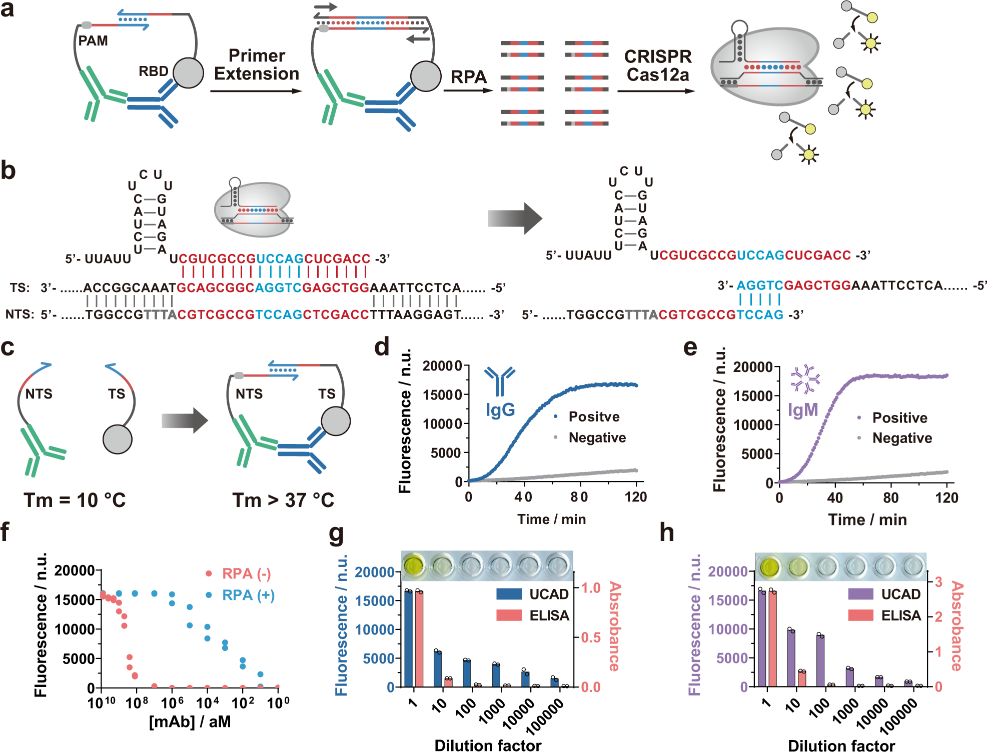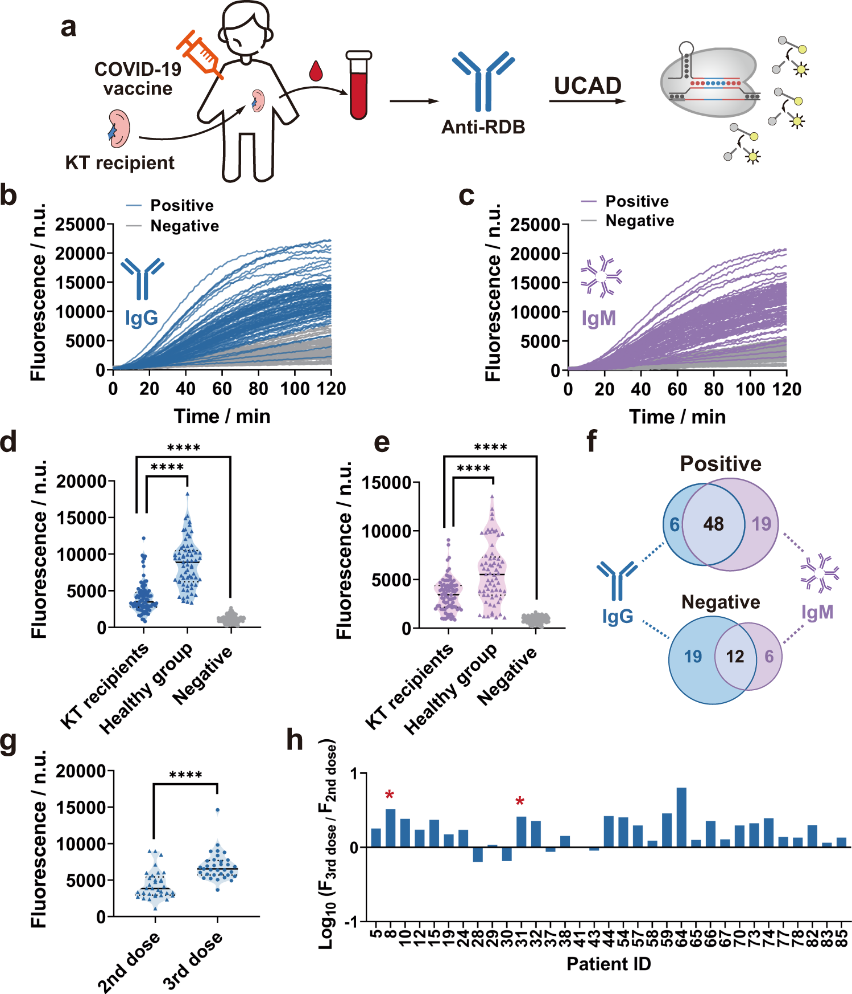In recent years, CRISPR technology has shown great potential to disease diagnosis. In particular, the CRISPR based SHERLOCK and DETECTR assays have been approved by FDA, U.S.A. for the ultrasensitive SARS-CoV-2 detection in clinical usage. However, CRISPR technology is used primarily for nucleic acid testing, and has not been expanded for the ultrasensitive protein analysis.
To address this challenge, Professor Feng Li and his group in the College of Chemistry, Sichuan University, integrated CRISPR technology with their previously investigated molecular translator technology and achieved ultrasensitive detection of anti-SARS-CoV-2 IgG and IgM in clinical serum samples. This assay does not require complicated sample handling. It translates the anti-SARS-CoV-2 antibodies in serum into a pre-designed DNA barcode, which provides template for thermostatic nucleic acid amplification and triggers the trans-cleavage activity of CRISRP-Cas12a for fluorescence readout. Due to the dual signal amplification, the LOD of this assay is as low as 10 aM, which is 10,000 times more sensitive than commercial anti-SARS-CoV-2 ELISA kits. The assay can be applied in detecting anti-SARS-CoV-2 IgG and IgM serological levels in early infection or immunocompromised subpopulations for early diagnosis or monitoring protection rates of vaccine.

Using this assay, Li group cooperated with Dr. Tao Lin, Urology Department, West China Hospital, to successfully monitor the anti-SARS-CoV-2 levels of kidney transplant recipients after receiving two doses of inactivated COVID-19 vaccine, as well as to evaluate the booster effects of the third dose of vaccine among the immunosuppressed population.

This work is published on Nature Communications, titled as “A CRISPR-based ultrasensitive assay detects attomolar concentrations of SARS-CoV-2 antibodies in clinical samples”. Sichuan University is top institute in the address list. Professor Feng Li in College of Chemistry and Dr. Tao Lin in West China Hospital are corresponding authors, and Professor Yanan Tang and Dr. Turun Song contribute equally to this work as co-first authors. This work is financially supported by the National Natural Science Foundation of China, the Sichuan Science and Technology Project and the Institutional Research Fund from Sichuan University.
Link: https://www.nature.com/articles/s41467-022-32371-4#
